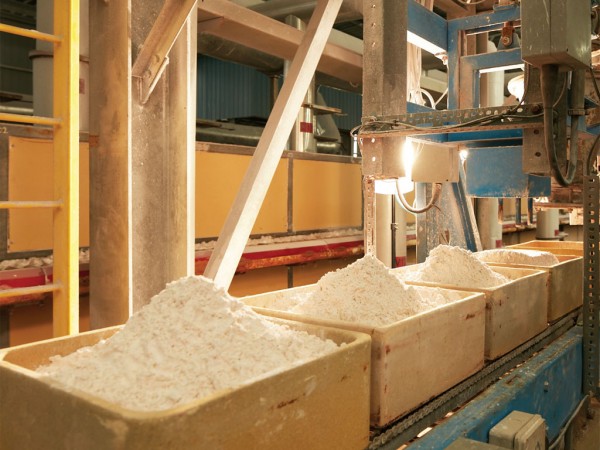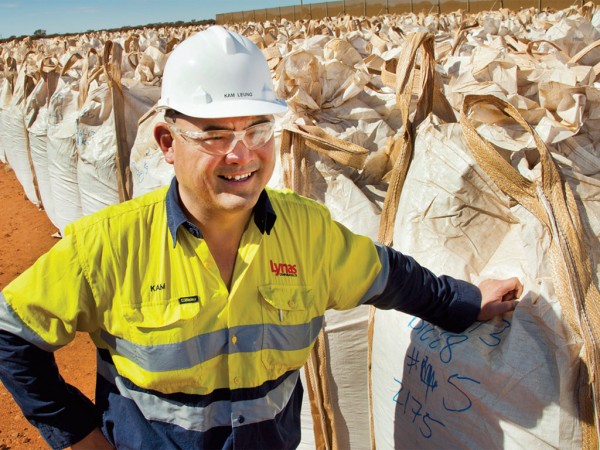Rare earth elements are the key to items as small as smart phones and as large as wind turbine generators and as the name implies…they are rare. One of the few companies specializing in extracting and processing REEs is Australian-based Lynas Corp. Keeping up with the global demand in REEs is an ongoing challenge for Lynas and other suppliers.
A lack of supply of refined rare earth elements (REE) could create havoc across a number of industries from automobiles to wind energy to consumer electronics. Lynas Corporation extracts many of these critical manufacturing ingredients from their mine in Australia and ships these concentrates to their refinery plants in Malaysia, then to their global customers. Lynas is preparing for an increase in demand from magnets in the electric vehicles and automation-appliances industries with their Project NEXT.

REEs and China
The recent Peoples Republic of China (PRC) crackdown on illegal mines for environmental concerns curtailed REE supply since there is a production shortage in their legal mines. As a result, prices increased last year. Now there is a stable price because of imports to China, recycling and some new production in the south mountainous areas of China. Pricing and reliable supply are paramount to global customers for their just in time manufacturing requirements across a number of industries. In 2011, the PRC RE price index peaked causing problems for producers worldwide. Lynas is seeking to fill the needs of customers with reliable on time deliveries and stable pricing.
Smart phones, wind energy, and new technologies in automobiles all require refined concentrations from REE. Light REEs of praseodymium (Pr) and neodymium (Nd) are mostly used for permanent magnets for end products of elevators, wind turbines and electric vehicles. These two are important to Lynas’ production and shipments.
“Lynas is the world’s number one supplier of Nd Pr to the free market and the number two producer with 20 percent of the global Nd Pr market,” according to the 2017 annual presentation by Lynas Corporation.
REE Supply Chain
Shipments of REEs are from a collapsed volcano at Lynas’ Mt. Weld mine site in Laverton which is 560 miles from Perth in Western Australia. The rare earths concentrate is packed into 2.8 tonne (metric ton) bags in shipping containers and is transported by truck from Mt. Weld to Leonora. At Leonora, the shipping containers are transferred onto a train, and are transported by rail to the Port of Fremantle, Western Australia. From Fremantle, Lynas’ shipping containers are transported to the Port of Kuantan, Malaysia, usually via Singapore, according to Lynas Corporation spokesperson in a recent e-mail reply for the American Journal of Transportation.
“This process takes approximately 12-18 days from Fremantle to Kuantan. We normally have a total of 7-21 days approximately of concentrate feedstock as buffer feedstock for our Malaysian plant. At any given time, the buffer feedstock is partly at the Malaysian plant, partly in transit and partly at Mt. Weld,” stated the spokesperson.

The oxide form is sold as white powders. “They are shipped in normal one tonne bags packed into regular shipping containers,” according to the Lynas spokesperson. These bags are expensive project cargo of praseodymium and neodymium worth around $50,000. There are no special warehousing or bagging requirements and storage is not temperature sensitive.
“We pack twelve one tonne bags into a standard shipping container. Our containers are shipped from the Port of Kuantan to global destinations including Japanese ports and Chinese ports,” replied the Lynas spokesperson. They use a variety of commercial carriers such as ONE and PIL, based in Singapore and there are no special handling requirements.
REE Markets
Lynas Corporation’s core client base for RE metals are China and Japan markets, and Europe and the USA are important strategic use markets. German based Bosch, a leading automotive supplier, signed a longterm agreement with Lynas this year. This will enable Bosch to receive a reliable supply with stable pricing for their use of magnets for automotive products.
In fiscal year 2017, Lynas’ sales were over $250 million Australian dollars ($177.5 million) with volumes of over 15,000 rare earth oxide tons (REOt). Nd Pr sales were over 5,000 REOt, according to their 2017 presentation. China sources estimate that worldwide demand for RE ore will be 210,000 tonnes per year. Other industries that utilize Lynas’ rare earths include auto catalysis, cracking agents in oil refineries and NiMH (Nickel-metal hybrid) batteries in hybrid vehicles.
To meet the growing demand, Lynas introduced Project NEXT in late 2017. This will include significant drill intersections at Mt. Weld to produce 600 tonnes per month from January 2019 above the current 500 tonnes per month of Nd Pr; improved cracking and leaching operations and tunnel furnaces; higher value product mix and engage directly with the automotive industry on rare earth technologies for long term contracts. “Our rare earths are essential inputs in many future facing industries and for manufacturers all over the world,” said a Lynas company official.





